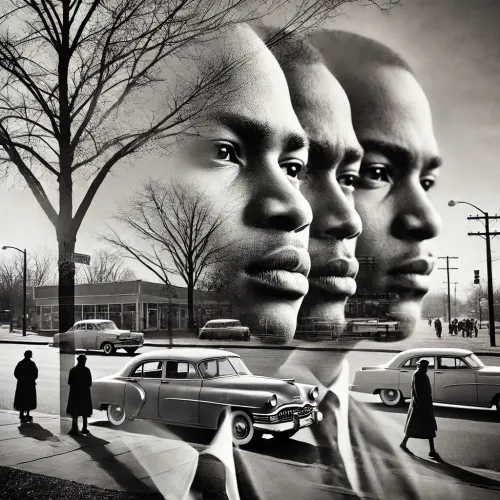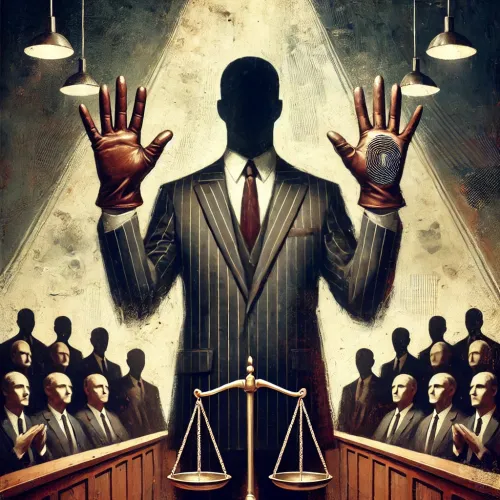The jury system has long been celebrated as a cornerstone of democracy, a mechanism through which ordinary citizens can serve as a check on governmental power. Yet, the growing bureaucratic complexity of the American justice system has steadily eroded this autonomy, diminishing the jury’s ability to act as an independent arbiter of justice. This bureaucratic expansion prioritizes efficiency, conformity, and control, often at the expense of fairness and community oversight. In doing so, it effectively suppresses jury nullification, a vital tool for resisting unjust laws and safeguarding democracy.
Bureaucratic influences pervade every level of the legal system, consolidating power in the hands of prosecutors, judges, and administrators. Prosecutors, armed with expansive charging discretion, routinely engage in charge stacking—piling on multiple charges to coerce defendants into accepting plea deals. This practice sidelines juries entirely, as over 90% of cases are resolved through plea bargains. For those cases that do reach trial, bureaucratic processes often limit the jury’s role. Judicial instructions focus narrowly on applying the law as written, excluding considerations of fairness or morality. Procedural constraints further reduce jurors to passive participants, enforcing the state’s agenda rather than acting as independent voices of the community.
This erosion of jury autonomy is particularly evident in the suppression of jury nullification. Nullification allows jurors to acquit defendants when they believe a law is unjust or its application is inappropriate. Historically, this power has played a pivotal role in advancing justice. During the 19th century, Northern juries refused to convict individuals who violated the Fugitive Slave Act, effectively nullifying laws that upheld slavery. Similarly, during Prohibition, juries frequently acquitted defendants charged with alcohol-related offenses, signaling widespread disapproval of the law. These acts of defiance were instrumental in shaping public policy and promoting social progress.
Today, however, bureaucratic systems actively suppress nullification. Judicial instructions often mislead jurors by implying that their role is limited to determining facts and applying the law, with no mention of their right to judge the law itself. In some cases, judges explicitly warn jurors against considering the fairness of the law. These instructions reflect a broader shift toward centralizing authority within the legal bureaucracy, effectively removing the jury’s ability to act as a check on systemic injustice.
The influence of bureaucracy also extends to the interpretation and enforcement of laws. Mandatory minimum sentencing guidelines, for example, remove discretion not only from jurors but also from judges, mandating harsh penalties regardless of individual circumstances. These rigid frameworks prioritize uniformity over fairness, leaving jurors unable to deliver verdicts that reflect the nuances of specific cases. In this context, the jury’s role is reduced to rubber-stamping the outcomes dictated by the state.
Critics of jury nullification argue that it undermines the rule of law by allowing jurors to impose personal beliefs on legal outcomes. While this concern is valid, it pales in comparison to the dangers posed by unchecked bureaucratic power. The justice system is not infallible; laws can be unjust, outdated, or poorly applied. Nullification provides a necessary counterbalance, ensuring that the legal system remains accountable to the values and priorities of the community it serves.
Moreover, the suppression of jury autonomy exacerbates systemic inequalities. Marginalized communities, disproportionately targeted by harsh laws and overzealous prosecutions, bear the brunt of bureaucratic overreach. Without the ability to nullify, jurors are complicit in perpetuating these injustices, upholding laws that criminalize poverty, enforce racial disparities, or impose draconian penalties for nonviolent offenses. By neutralizing jury nullification, the bureaucratic system removes a critical avenue for addressing these systemic failures.
Restoring jury autonomy requires empowering jurors with full knowledge of their rights and responsibilities. Judges should provide clear and accurate instructions, acknowledging the jury’s right to nullify when appropriate. Educational initiatives, such as those led by the Fully Informed Jury Association (FIJA), can also play a vital role in raising awareness about the jury’s democratic function. Additionally, reforming prosecutorial practices to limit charge stacking and reducing reliance on plea bargaining would ensure that more cases reach juries, allowing them to fulfill their role as independent arbiters of justice.
Reforming the justice system to reduce bureaucratic overreach is not about dismantling the rule of law—it is about restoring balance. Juries were designed to serve as a safeguard against governmental power, reflecting the conscience and values of the community. Suppressing jury nullification through bureaucratic expansion undermines this purpose, transforming jurors into passive enforcers of the state’s will rather than active participants in the pursuit of justice.
The influence of bureaucracy on the jury system highlights a troubling shift in the balance of power within the justice system. By prioritizing efficiency and control, the legal bureaucracy undermines the democratic principles that underpin the jury’s role. Nullification offers a vital counterweight, ensuring that laws remain accountable to the people they serve. Protecting this right is essential to preserving the integrity of the justice system and ensuring that it delivers not only legality but also fairness.
In a democratic society, the jury is more than a tool for enforcing laws—it is a mechanism for challenging them when they fail to serve justice. To resist bureaucratic overreach and restore the jury’s autonomy, we must reaffirm the importance of jury nullification as a cornerstone of democracy and fairness in the legal system. Only then can the jury fulfill its purpose as a check on power and a defender of justice.




